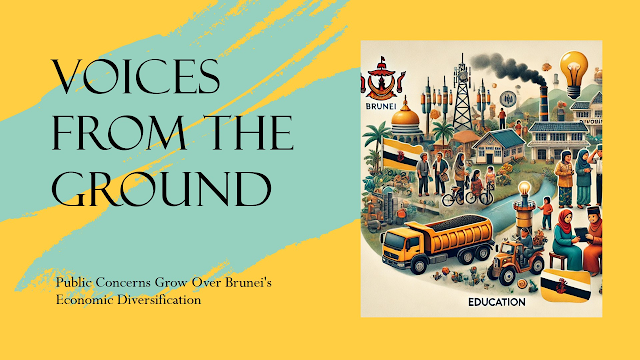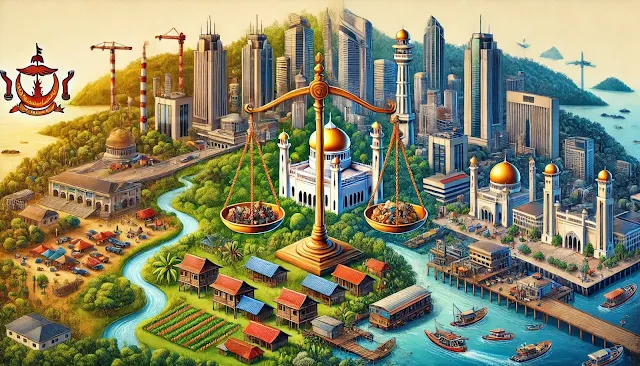Bandar Seri Begawan 23rd August: Public concern has emerged regarding Brunei's 2024/2025 national budget, part of the 12th National Development Plan (RKN 12).
Critics argue that the current budget may not sufficiently address the need for economic diversification and infrastructure development, potentially impacting the nation's long-term sustainability.
The proposed budget for the 2024/2025 financial year, themed 'Building a Prosperous Future Together,' is set at BND6.25 billion, an increase from the previous year's BND5.96 billion.
This increase was announced by Minister at the Prime Minister's Office and Minister of Finance and Economy II, Yang Berhormat Dato Seri Setia Dr Awang Haji Mohd Amin Liew bin Abdullah, during the 20th session of the Legislative Council (LegCo) meeting.
The minister outlined that the budget includes BND2.29 billion for emoluments, BND2.40 billion for recurring expenditures, BND500 million for projects under the 12th National Development Plan (RKN 12), and BND1.06 billion for acknowledged expenditure.
Concerns remain about whether the budget prioritizes sectors that can drive sustainable growth.
Observers have pointed out that neighbouring regions, such as Sarawak, have seen rapid development, including mass transit systems, new highways, and expanded infrastructure.
In contrast, several districts in Brunei, including Tutong and Belait, are perceived to be lagging in visible development.
Economic analysts have highlighted that while BND17.5 million has been allocated for vegetable production, BND18 million for livestock development, and BND18.5 million for aquaculture sites, these figures may not be sufficient to significantly reduce Brunei's reliance on the oil and gas sector.
The minister forecasted that 75 per cent of the projected BND3.26 billion in revenue for the 2024/2025 financial year will still come from oil and gas, underscoring the continued dependence on this sector.
Further scrutiny has been directed at the lack of significant investment in infrastructure. While BND60 million has been allocated for airport runway upgrades and BND36.4 million for tourism infrastructure, critics argue that more comprehensive development is needed for long-term economic stability.
Another area of concern is the expected budget deficit, forecasted at BND2.99 billion. This figure will be updated periodically based on factors such as oil and gas production levels, global oil prices, and the performance of the non-oil and gas sector.
The government recorded a budget surplus of BND260.46 million in the 2022/2023 financial year, attributed to higher global oil prices, but the current outlook remains cautious.
Calls for greater transparency and public involvement in budget decisions have also surfaced.
Some citizens have suggested that a more participatory approach to budget allocation could help ensure that funds are directed toward areas with the greatest impact on national development.
"We need to ensure that budget decisions are made with input from a broad cross-section of society. This would help align spending with the needs and aspirations of the people," said a community leader from Belait District.
As Brunei navigates an uncertain global economic landscape, the debate over budget allocation is likely to continue, with many urging a renewed focus on diversification and infrastructure development.
The government's ability to manage its resources effectively will be crucial in addressing public concerns and securing a prosperous future for the nation. (MHO/08/2024)


.jpeg)









